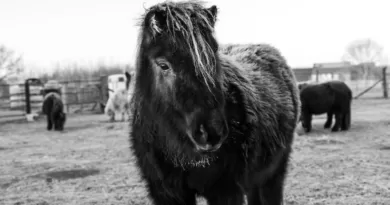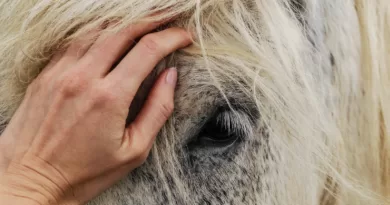How Long Do Horses Usually Live: Unveiling the Lifespan of Majestic Equines
When it comes to the world of magnificent creatures, horses undoubtedly steal the spotlight. With their graceful gallop and soulful eyes, they have captured the hearts of humans for centuries. If you’ve ever wondered about the longevity of these majestic animals, you’re in the right place. In this article, we’ll delve into the intricacies of a horse’s lifespan, uncovering facts, figures, and fascinating insights that every horse enthusiast should know.
Unraveling the Secrets: The Average  Lifespan of Horses
Lifespan of Horses
Horses, like humans, can have varying lifespans, influenced by factors such as breed, health, and care. On average, a horse typically lives for 25 to 30 years. However, this is a generalized figure, and it’s essential to explore the nuances that impact a horse’s longevity.
The Role of Breed in Lifespan
Different horse breeds exhibit distinct lifespans. For instance, ponies tend to live longer, often reaching their mid-30s or even 40s, while larger breeds like Thoroughbreds may have a shorter lifespan of around 25 years. It’s a bit like comparing the longevity of a Chihuahua to that of a Great Dane among dogs.
The Impact of Genetics
Genetics plays a pivotal role in determining how long a horse will live. Just as certain traits are inherited in humans, horses can inherit genetic predispositions to certain health issues. Responsible breeding practices can mitigate some of these concerns, but it’s a factor that should be considered.
The Weight of Care and Nutrition
Proper care and nutrition are paramount to ensuring a horse lives a long and healthy life. Regular veterinary check-ups, a balanced diet, and a safe, clean environment all contribute to a horse’s well-being. Neglecting any of these aspects can significantly impact their lifespan.
The Influence of Lifestyle on Horse Lifespan
A horse’s lifestyle can also make a considerable difference in how long they live. Let’s explore some lifestyle factors that come into play:
Activity and Exercise
Just like humans, horses benefit from regular exercise. An active horse tends to stay healthier and live longer than a sedentary one. Activities such as riding, turnout, and even equine sports can contribute to a longer and more fulfilling life for these animals.
Social Interaction
Horses are inherently social creatures. They thrive when they have the companionship of other horses. Solitary confinement can lead to stress and other health issues, potentially shortening their lifespan.
Stress and Environment
Stress can be a silent killer for horses. High-stress environments, such as overcrowded or noisy stables, can have a negative impact on their health. Providing a calm and soothing environment is essential for a longer life.
Extending the Lifespan: Tips for Horse Owners
If you’re a proud horse owner or planning to become one, there are several key takeaways to help extend your equine companion’s lifespan:
- Proper Nutrition: Ensure your horse receives a well-balanced diet tailored to their specific needs, including age, breed, and activity level.
- Regular Veterinary Care: Schedule routine check-ups with a trusted veterinarian to catch and address health issues early.
- Exercise and Socialization: Allow your horse ample time for exercise and ensure they have the company of other horses whenever possible.
- Stress Reduction: Create a stress-free environment by providing a quiet and comfortable living space.
- Love and Attention: Shower your horse with care and affection. A happy horse is a healthier horse.
- Safety Measures: Keep your horse safe from accidents by maintaining secure fencing and stable structures.
See Also: How long do horses live? Amazing Facts About Horses’ Life
Frequently Asked Questions
FAQ 1: What is the longest recorded lifespan of a horse?
The longest recorded lifespan of a horse is 62 years. A remarkable feat achieved by “Old Billy,” an English barge horse born in 1760.
FAQ 2: Can a horse’s lifespan be extended with modern veterinary care?
Yes, modern veterinary care, including vaccinations, dental care, and advanced medical treatments, can significantly extend a horse’s lifespan when administered regularly.
FAQ 3: What are some common health issues that can shorten a horse’s lifespan?
Common health issues that can affect a horse’s lifespan include lameness, colic, dental problems, and respiratory issues.
FAQ 4: Do horses live longer in the wild or in captivity?
Horses tend to live longer in captivity, where they receive proper care, nutrition, and medical attention. In the wild, they face natural predators and harsh environmental conditions.
FAQ 5: Can the age at which a horse starts training impact its lifespan?
Yes, starting a horse’s training too early or overworking them at a young age can lead to health problems that may shorten their lifespan. It’s essential to follow responsible training practices.
FAQ 6: Are there any special considerations for senior horses?
Senior horses require specialized care, including softer diets, regular dental care, and reduced physical demands. Providing proper care for your aging horse can help them enjoy their twilight years comfortably.
FAQ 7: How can I tell if my horse is stressed, and what can I do to alleviate it?
Horses may show signs of stress through behaviors such as pacing, cribbing, or decreased appetite. To alleviate stress, ensure a calm and quiet environment, provide ample social interaction, and consider consulting a veterinarian for guidance.
FAQ 8: Can a horse’s lifespan be affected by the climate and geography of its living environment?
Yes, extreme climates or challenging geographical conditions can impact a horse’s lifespan. Adequate shelter, protection from extreme weather, and appropriate acclimatization measures are crucial in such environments.
FAQ 9: Is it possible to predict a horse’s lifespan based on its pedigree or family history?
While a horse’s pedigree can provide some insights into potential health issues, it’s not a definitive predictor of lifespan. Individual care and genetics play significant roles, and each horse should be treated as a unique case.
Your Journey with Horses
In the world of horse enthusiasts, understanding the nuances of a horse’s lifespan is not just a matter of curiosity; it’s a responsibility and a testament to our love for these magnificent creatures. By following best practices in horse care, you can ensure that your equine companion enjoys a long, happy, and healthy life by your side.
So, whether you’re a seasoned equestrian or someone contemplating the joys of horse ownership, remember that the bond you share with your horse can transcend time, making every moment together truly priceless.
Enjoyed this article? You May Also Like:
- Learn in 5 minutes about Cryotherapy for Horses
- Penicillin in Horses; Impeccable Guide in 10 minutes
- Excede Antibiotic For Horses, Fantastic Facts in 5 minutes
- The Science of Oxytocin in Horses: How This Hormone Influences Equine Behavior
- Can Horses Swim? Everything You Need To Know About Horse Swimming





